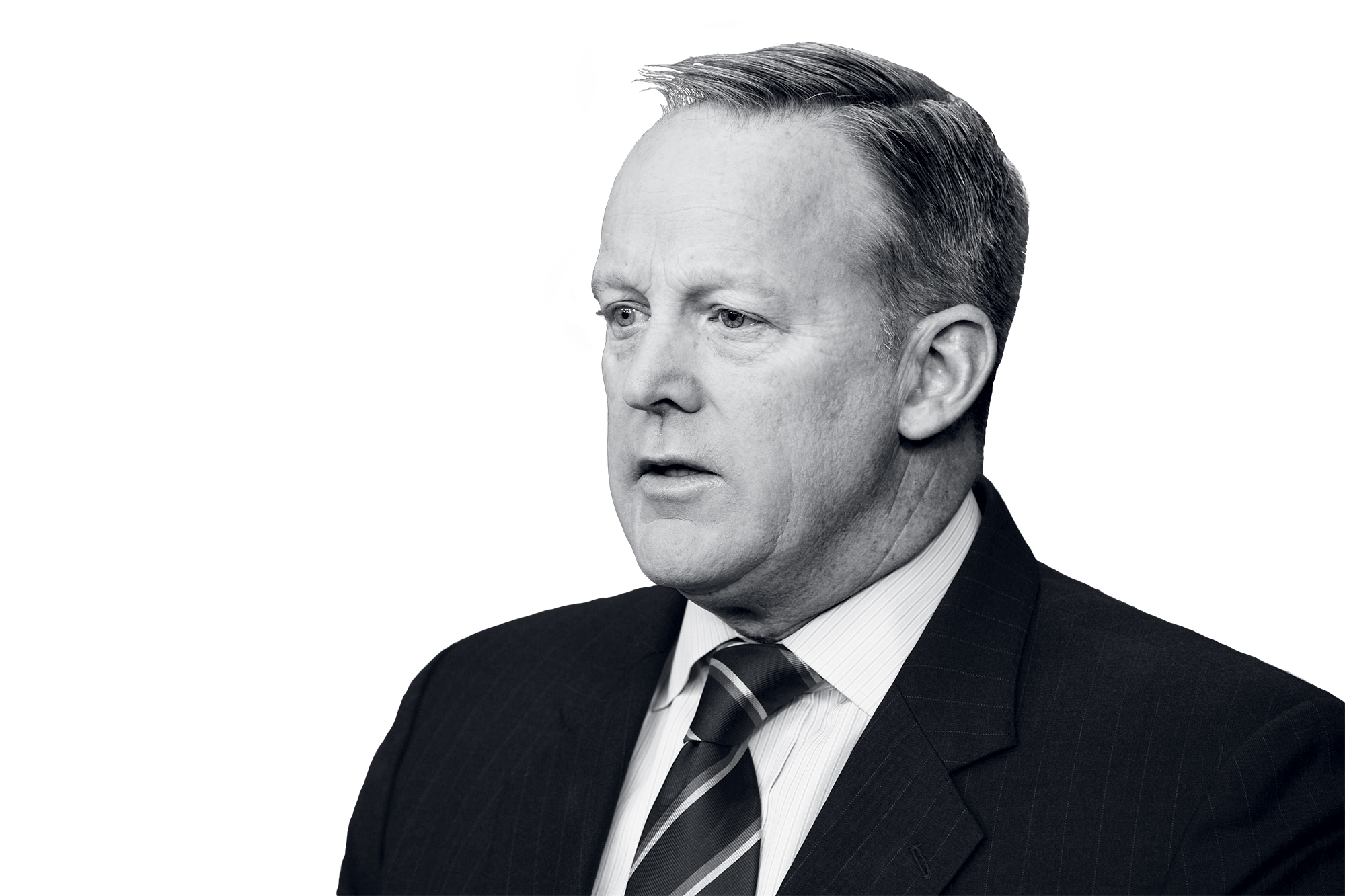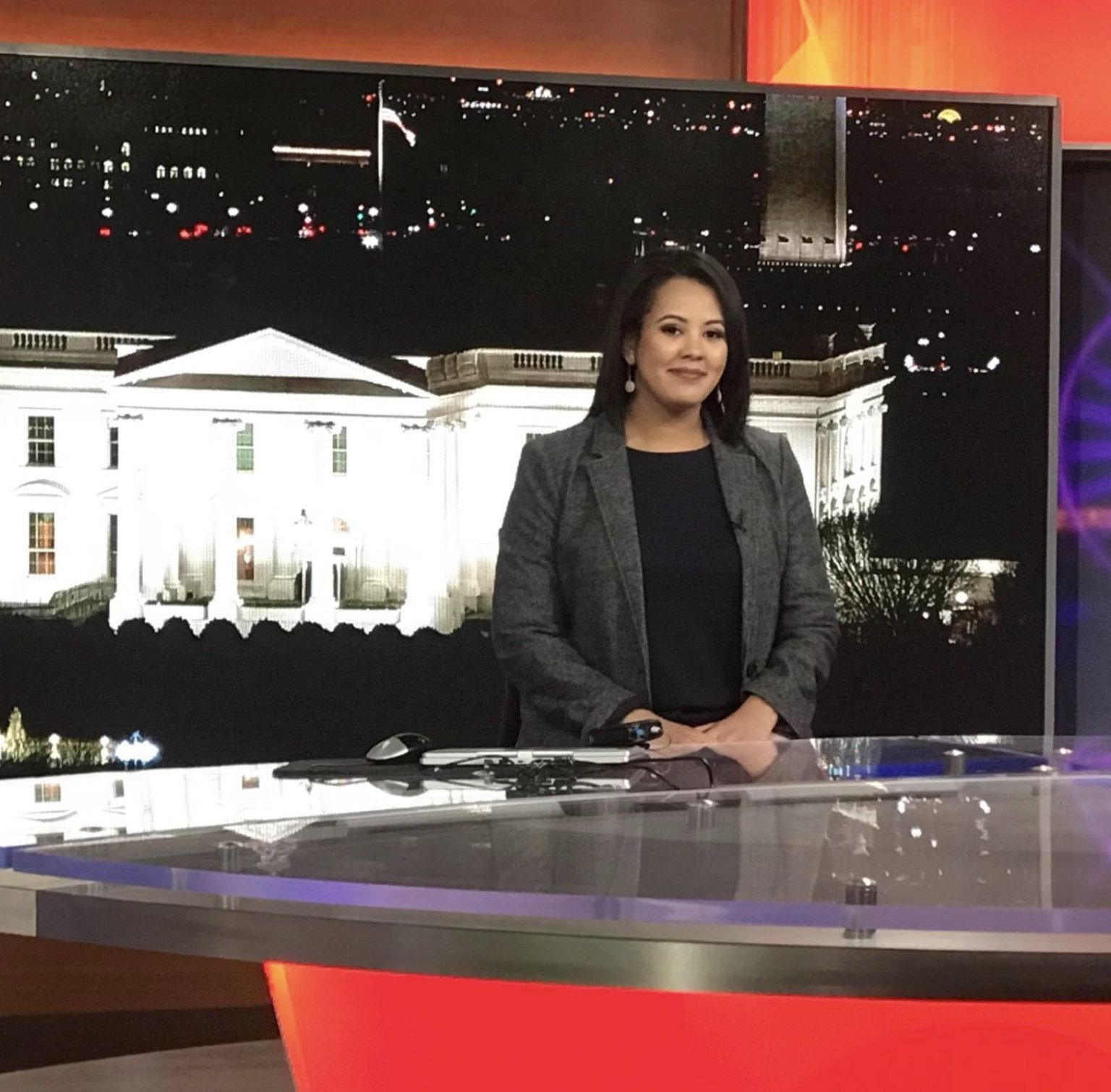It’s a Monday afternoon at the Trump International Hotel, and Sean Spicer is very much in his element, even though it’s been almost a year since he quit his gig working for the Trump administration. The former White House press secretary positively floats through the grandiose atrium, flashing a grin when a family wearing MAKE AMERICA GREAT AGAIN hats all smile and wave as he passes.
Spicer isn’t here to bask in the approval of Trump-adoring tourists—he has a book to promote. The Briefing is a chronicle of his time with Trump and a defense of his tenure, which has been savaged by many pundits and was mercilessly mocked on SNL. But the often lighthearted account tries to present a different side of Spicer (who is also hosting a podcast, Everything’s Going to Be All Right, and developing a talk show). “I wanted it to be an authentic representation of who I was,” he says. “There’s a one-dimensional view in a lot of people’s minds of who I am and what I did.”
After we’re led to a table in the hotel’s private whiskey-tasting room, Spicer orders a soda and settles in to make his case. “The goal of the book is to give people the context and understanding of some decisions we made,” he tells me. “What they conclude at the end of that is up to them.”
In the book, a chapter called “Baptism by Fire” discusses the administration’s stressful early days. It seems that fire is still burning, though most of the staff has changed.
I don’t know that I would agree that the staff is entirely changed. Most of my staff that I worked with in Communications and Press is fairly intact.
But McMaster’s gone, Reince is gone, Bannon’s gone, Hope is gone.
Yeah, okay, good point. But the intensity has gone down. There’s a lot less palace intrigue, a lot less leaking. The factions have gone away. At the beginning, it was a lot of Reince’s team and Steve’s team and Ivanka and Jared’s team. That’s ebbed a lot.
Why has there been so much leaking?
There’s a lot of reasons. One is there’s more outlets to share things to, right? I think people use it to gain an advantage over a colleague. And to some degree, people have realized that’s a way to get noticed.
You write that early on, the President was surrounded by people who were “long on loyalty but short on experience.” Can that formula actually get things done?
You’re also seeing some of the turnover work out well, meaning you look at Larry Kudlow: He’s worked for Reagan. He’s hardly short on experience. Ambassador Bolton at the National Security Council: Here’s a guy who clearly understands government—very deep understanding of how to get things done.
You hurt the cause when you paint the media with one broad stroke. There are good reporters.
On the other hand, there’s all of this controversy coming out of the EPA.
Well, there’s two things. One is some of the actions and activities that Scott Pruitt [was] doing versus the regulatory impact he [was] having. So no, it’s not helpful, but I also don’t think it’s affecting people’s ability to do their job.
At both the beginning and end of the book, you discuss your relationship with Anthony Scaramucci, whose hiring led you to resign. Why dedicate so much space to him?
That’s a large part of the story—how everything went down at the end. I don’t have anything personal against Anthony. I didn’t think it was going to create a good dynamic. I didn’t think he had the skill set necessary. That’s not a slight, but it was the reason I left. Working with the media requires a certain understanding of who they are, how they operate. He might be good on television, he might be a passionate supporter, but there’s a skill set that’s required.
You write a lot about the White House press corps—and not always negatively.
You hurt the cause when you paint the media with one broad stroke. It’s important if you’re going to be critical to also point to positive things. I don’t think many people are expecting to see a nice little thing about [New York Times reporter] Maggie Haberman in my book, but there are good reporters who are well sourced, who focus on the truth, who follow a fairly professional process—contacting sources and contacting you and saying, “Comment on this.” Then there are some who I clearly don’t believe are in the pursuit of good journalism.
But then the President tweets that perhaps press credentials should be taken away from reporters who do negative stories about him. Do you agree with that?
I’m not the White House press secretary anymore, but I will say that he did put a question mark after that, saying, “Should we?” I am a strong advocate of the First Amendment, so I would never advocate pulling somebody’s pass.
Why haven’t you taken a corporate communications gig like some of your predecessors? Are private-sector companies afraid to hire out of the Trump administration?
That’s not been a problem. Even on the speaking front—I’m sure there are some companies that [would be nervous] because of the President or my political affiliations, but there’s plenty who are really supportive or just want some insight into what’s going on in Washington. Right now, I’m just having fun. I’ve been very fortunate and blessed to have a lot of opportunities.
You live in Alexandria, which is not exactly Trump country. What’s that like?
My experience leaving the White House has been probably 95 percent positive. I can count the negative experiences on one hand.
What kinds of negative experiences?
Someone made some offhand comment about “I can’t believe you work for that man.” But I can’t tell you the last time there’s been a real negative comment. Even then, a lot of time it’s like you walk by a table and somebody makes a gesture.
Does it get under your skin at all?
No. For the most part, people are polite. I’m sure that’s not some admission that people are approving—there’s probably plenty of people who just don’t say anything.
This article appears in the August 2018 issue of Washingtonian.




















